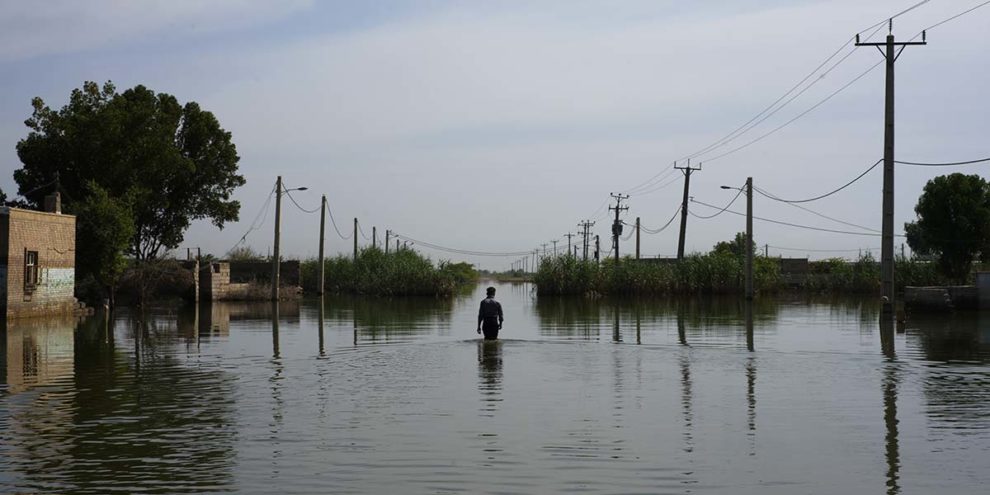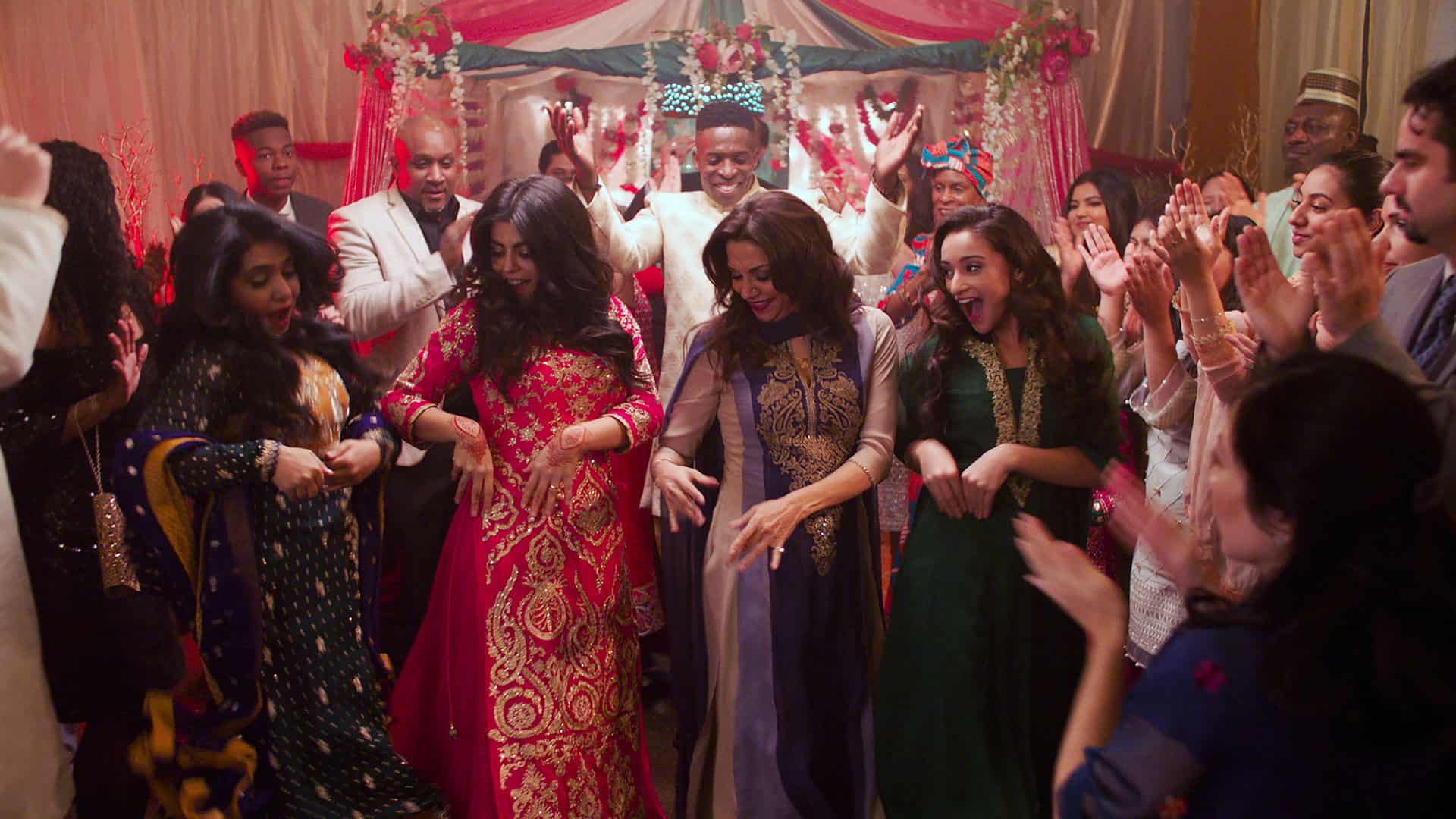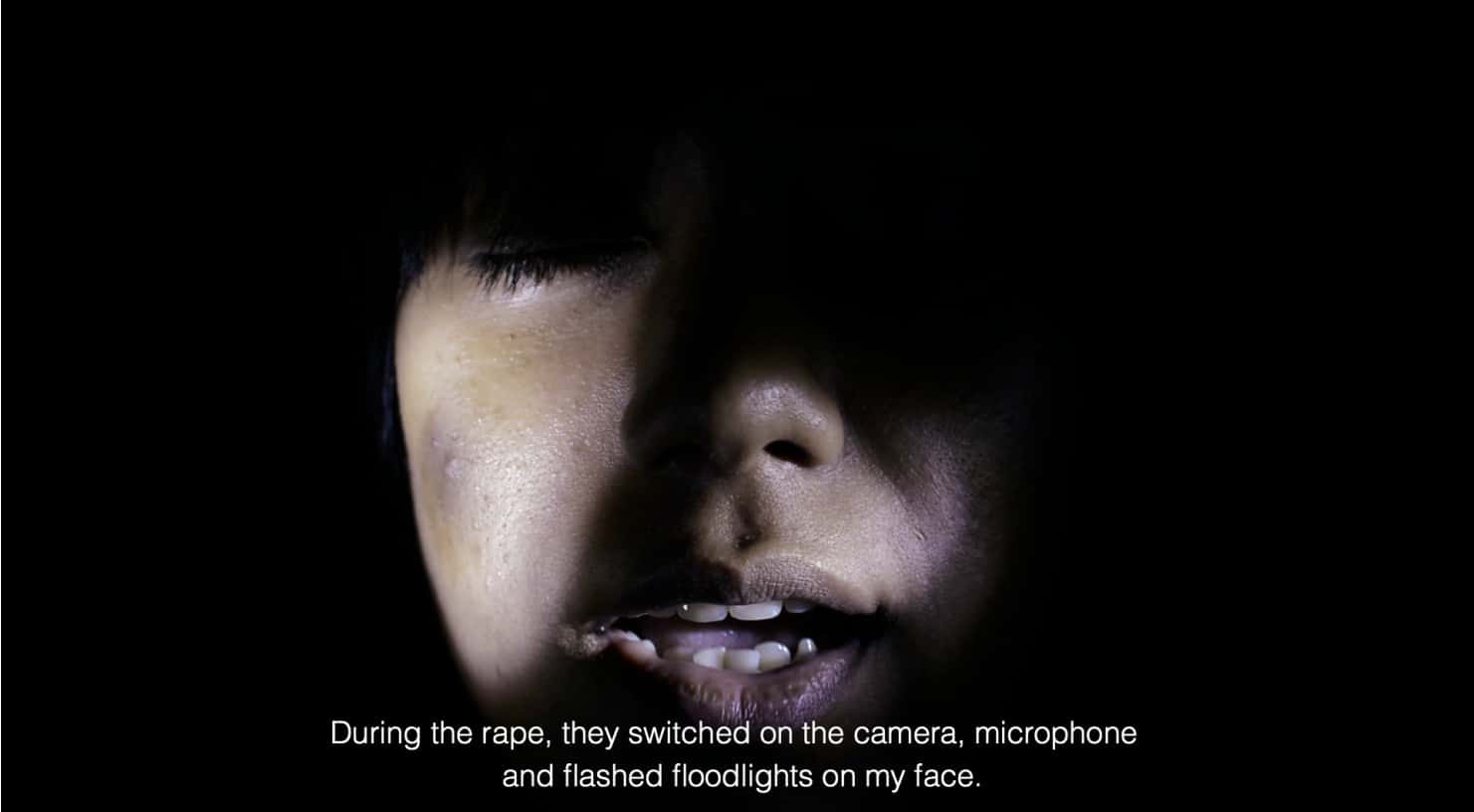One of the only Asian films showing at this year's Mill Valley Film Festival, Iranian-German co-production “Bandar Band,” sashays its way to the California Streaming rooms. Director Manijeh Hekmat – beloved on the film festival circuit for her filmography on Iranian women (most recently, “The Old Road” – a drama revolving around sexual violence) directs another touchingly intimate fiction following the 2019 Iran floods.
“Bandar Band” follows a musical trio by the same name. The three – the very visibly pregnant Mahla (Pegah Ahangarani), her steadfast husband Amir (Amir Hossein Taheri), and their free-spirited friend, Navid (Reza Koolghani) — are on their way to Tehran for a faceoff with the Battle of the Bands that evening. Though their journey starts off in high spirits, their hopes are dashed over and over again. As the group literally navigates flooded roads, unfinished bridges, and material loss, the group runs into more metaphorical (and literal) roadblocks than initially expected. This Absurdist road movie takes its viewers on an emotional wave — until the group members break one by one, like buttresses broken in a flood.
Within this doomed journey, Hekmat continually contracts and expands her diagetic world. The film oscillates between claustrophobic medium shots within the car – where the trio sing and cry and yell – to expansive extreme long shots, covering the breadth of the broken landscape around them. Close ups of __'s many video chats and phone calls indicate thin lifelines to the outside world, but too tenuous for the band to get a steady grasp on. Through the extensive manipulation of space, the viewer feels like they too are cooped up in the car with the Bandar Band; it is only a matter of time before one is ready to stretch their legs to go for a run after the drudgery of a foiled plan after plan.
Ahangarani's elegant take on Mahla is most admirable in this film. She walks the fine line of acting in free-spirit, but also of motherly responsibility. She maintains a gentle optimism throughout the action — offsetting Navid's own manic firecracker-like energy and her own husband's repeated devastation. When watching her, one forgets that she is a fictional character. Her performance is paradoxical in a way; in one manner she is almost divine in her patience, yet her expressions are laced with a human-like subtlety.
Mahla's depth perhaps speaks to Hekmat's own rare ability to speak to broader issues with the nuances of intimacy. Instead of indicating sweeping gestures to non-Tehran Iran, Hekmat takes advantage of the ambiguity of the winding roads. In this, this is not a state of going; this is a state of being. In this way, “Bandar Band” encapsulates both national frustrations, and perhaps a more universal undercurrent of the contemporary 20-30 year old experience: one that is fueled by hope, but continually dashed by systemic restraints.
Overall, “Bandar Band” spins an exquisite fiction on millennial hopefuls. Like any road movie, it's about the journey, not the destination — though sometimes, it helps to have the destination still within reach.















